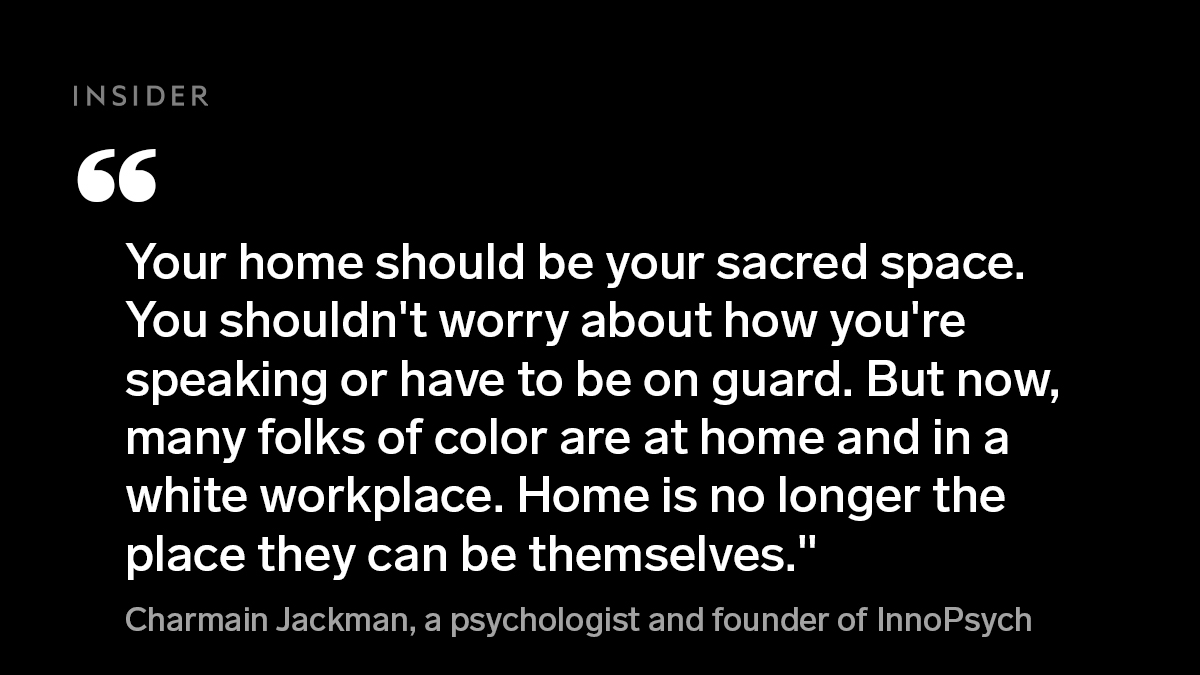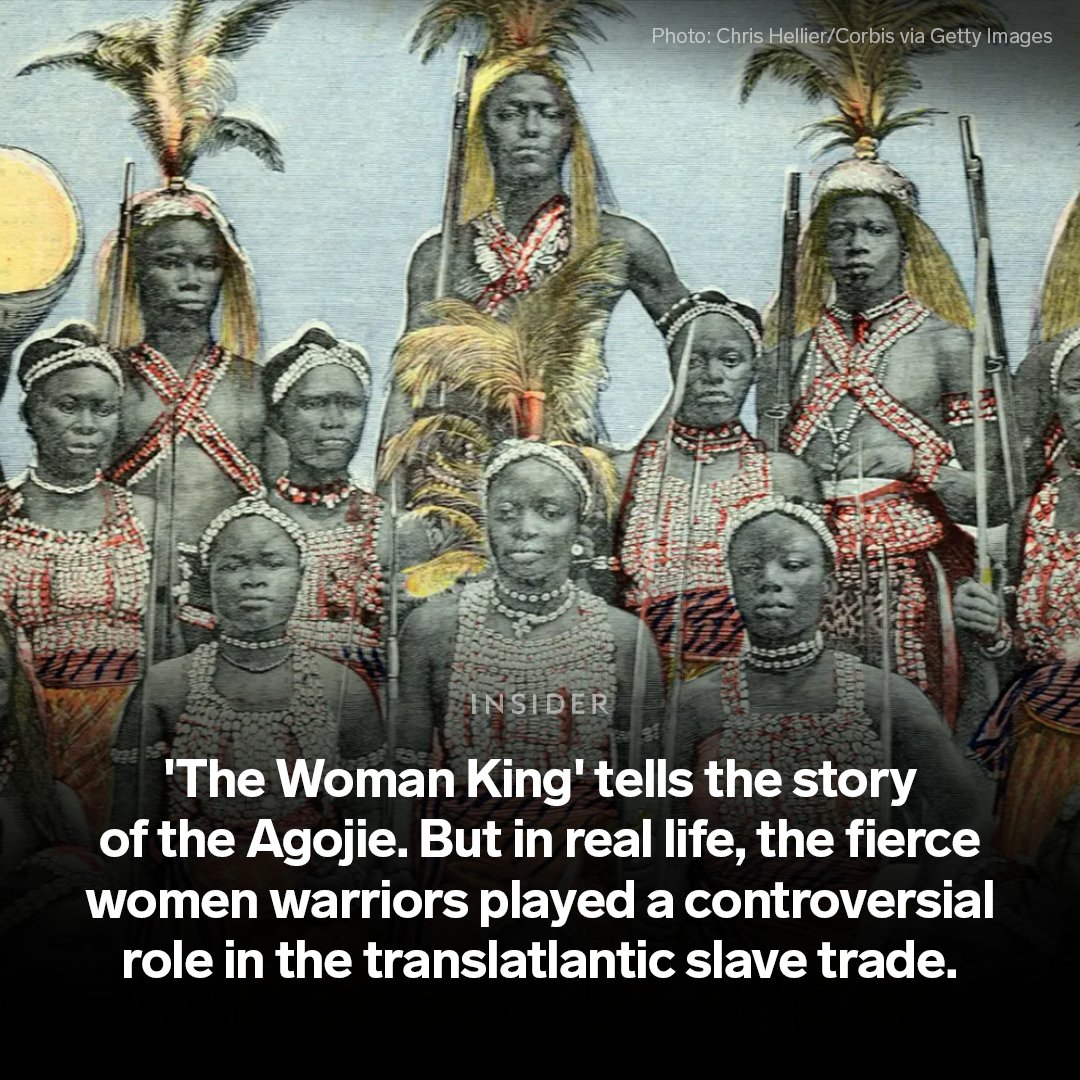Jodi-Ann Burey smiled frequently during her pitch, mentioned her goldendoodle, and laughed off a microaggression.
“I needed to become a different person,” she said.
Code-switching at home takes an emotional toll on Black professionals.
businessinsider.com/code-switching…
“I needed to become a different person,” she said.
Code-switching at home takes an emotional toll on Black professionals.
businessinsider.com/code-switching…
Code-switching entails temporarily shifting language, behavior, and appearance to conform to norms and gain credibility in the white-and male-dominated workplace.
For Black employees, code-switching is a coping mechanism and survival strategy.
businessinsider.com/code-switching…
For Black employees, code-switching is a coping mechanism and survival strategy.
businessinsider.com/code-switching…

Feeling the need to conform to the white-dominant culture while sitting at your kitchen table is emotionally straightjacketing, experts said.
businessinsider.com/code-switching…
businessinsider.com/code-switching…

Tomi Akitunde, a journalist and the editor of mater mea, a platform for Black mothers, describes code-switching like this: "You go to work. You put on armor, and you get the job done. Then you clock out and you get to be yourself."
businessinsider.com/code-switching…
businessinsider.com/code-switching…
Years ago, when Akitunde worked in a newsroom, she code-switched so effectively that a colleague told her she wasn't, "really that Black."
businessinsider.com/code-switching…
businessinsider.com/code-switching…

Brian Pearson, president of the franchise and real-estate consultancy Invictus Development Group, said at a previous job, he was the lone person of color at his organization.
businessinsider.com/code-switching…
businessinsider.com/code-switching…

Sharon Harris, the chief marketing officer of the digital-marketing firm Jellyfish, realized that if she felt this vulnerable as a senior executive, younger employees must be hurting, too.
businessinsider.com/code-switching…
businessinsider.com/code-switching…

Companies can help build a more equitable workspace by making a framework for meeting protocols: defining dress code standards, backgrounds, and more.
businessinsider.com/code-switching…
businessinsider.com/code-switching…
As for Burey, she landed the client deal and the project was successful. But at what cost of her identity?
businessinsider.com/code-switching…
businessinsider.com/code-switching…
• • •
Missing some Tweet in this thread? You can try to
force a refresh















